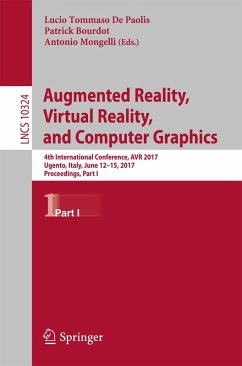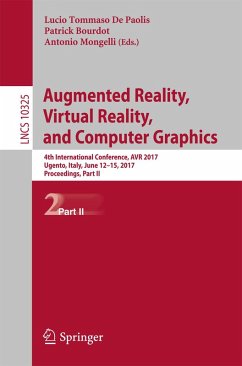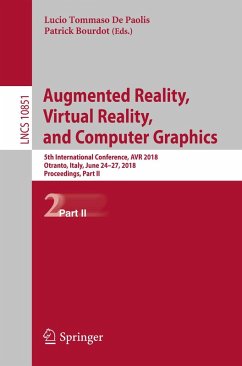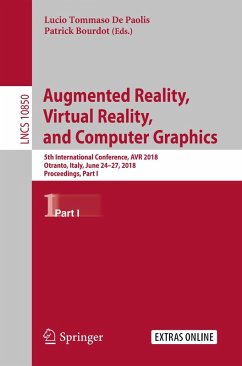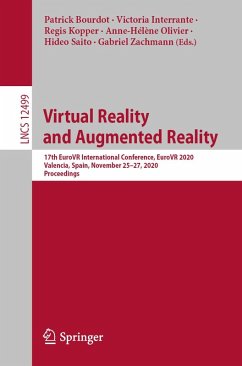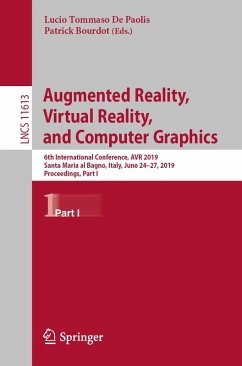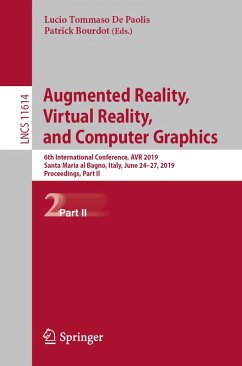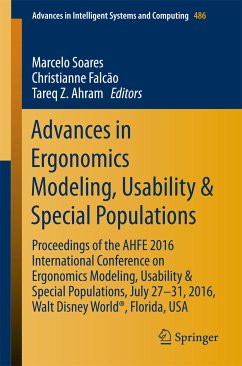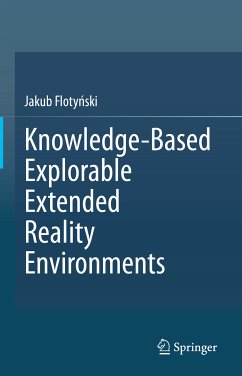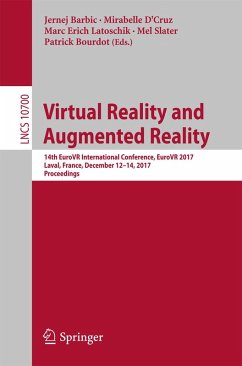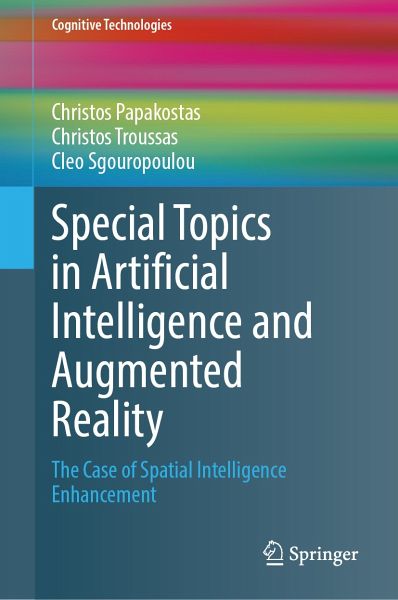
Special Topics in Artificial Intelligence and Augmented Reality (eBook, PDF)
The Case of Spatial Intelligence Enhancement
Versandkostenfrei!
Sofort per Download lieferbar
96,95 €
inkl. MwSt.
Weitere Ausgaben:

PAYBACK Punkte
48 °P sammeln!
This monograph explores the synergy of Artificial Intelligence (AI), Augmented Reality (AR) and cognitive processes to enhance spatial abilities - an integral aspect of cognitive development. The ability to comprehend and manipulate spatial information is not only fundamental to our understanding of the physical world but also plays a pivotal role in numerous academic and professional fields. Recognizing the profound impact of spatial ability on scientific disciplines and educational achievement, this monograph takes on the challenge of enhancing spatial skills among users.The authors present ...
This monograph explores the synergy of Artificial Intelligence (AI), Augmented Reality (AR) and cognitive processes to enhance spatial abilities - an integral aspect of cognitive development. The ability to comprehend and manipulate spatial information is not only fundamental to our understanding of the physical world but also plays a pivotal role in numerous academic and professional fields. Recognizing the profound impact of spatial ability on scientific disciplines and educational achievement, this monograph takes on the challenge of enhancing spatial skills among users.
The authors present the design and development of a mobile training system that incorporates AR features to enhance learners' spatial ability. Involving mental generation, transformation, and rotation of visual images for understanding spatial relationships, spatial ability is closely linked to success in various scientific disciplines and educational pursuits. While spatial visualization skills testsare available, this monograph takes a unique approach by focusing on developing targeted interventions to improve spatial ability. It aims to unlock new avenues for cognitive growth and dive into the untapped potential within the realm of spatial intelligence.
Beyond its emphasis on spatial ability enhancement, this monograph goes above and beyond traditional approaches by integrating AI techniques into the training system. As such, it aims to provide personalized and adaptive learning experiences for learners. The training system, through intelligent techniques, dynamically analyzes individual learners' strengths, weaknesses, and progress, tailoring content and challenges to their specific needs. This effort establishes a new frontier in educational technology, offering a groundbreaking solution that not only augments spatial ability development but also showcases the transformative potential of AI in reshaping the learning experience.
The book is a valuable resource for researchers, educators, developers and technology enthusiasts, as it exemplifies the profound impact of AI and AR in shaping the future of online learning experiences.
The authors present the design and development of a mobile training system that incorporates AR features to enhance learners' spatial ability. Involving mental generation, transformation, and rotation of visual images for understanding spatial relationships, spatial ability is closely linked to success in various scientific disciplines and educational pursuits. While spatial visualization skills testsare available, this monograph takes a unique approach by focusing on developing targeted interventions to improve spatial ability. It aims to unlock new avenues for cognitive growth and dive into the untapped potential within the realm of spatial intelligence.
Beyond its emphasis on spatial ability enhancement, this monograph goes above and beyond traditional approaches by integrating AI techniques into the training system. As such, it aims to provide personalized and adaptive learning experiences for learners. The training system, through intelligent techniques, dynamically analyzes individual learners' strengths, weaknesses, and progress, tailoring content and challenges to their specific needs. This effort establishes a new frontier in educational technology, offering a groundbreaking solution that not only augments spatial ability development but also showcases the transformative potential of AI in reshaping the learning experience.
The book is a valuable resource for researchers, educators, developers and technology enthusiasts, as it exemplifies the profound impact of AI and AR in shaping the future of online learning experiences.
Dieser Download kann aus rechtlichen Gründen nur mit Rechnungsadresse in A, B, BG, CY, CZ, D, DK, EW, E, FIN, F, GR, HR, H, IRL, I, LT, L, LR, M, NL, PL, P, R, S, SLO, SK ausgeliefert werden.



